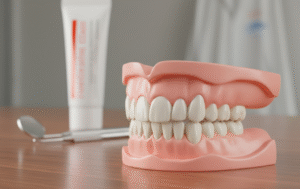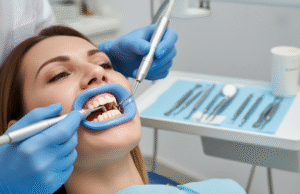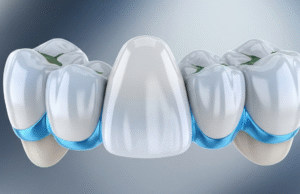Denture face refers to the altered facial appearance that can occur due to long-term denture use.
This condition often results from bone loss and changes in soft tissue support. **Introduction** Denture face affects many individuals who rely on dentures for dental restoration. Over time, wearing dentures can lead to significant changes in facial structure. Loss of natural teeth often results in bone resorption, which can cause the face to appear sunken and aged.
The lack of tooth roots stimulates bone growth, so their absence can lead to a hollowed look around the cheeks and jawline. Understanding denture face is crucial for those considering dentures, as it highlights the importance of regular dental check-ups and potential alternatives. Proper denture fitting and maintenance can mitigate these effects, ensuring a more youthful appearance.
Introduction To Denture Face
Denture face refers to the changes in facial appearance caused by dentures. Many people believe that dentures always lead to a sunken face. This is not entirely true. Properly fitted dentures can maintain facial structure and appearance.
Some common misconceptions include the idea that all dentures look fake. Modern dentures are designed to look very natural. Another myth is that dentures are uncomfortable. With the right adjustments, they can feel quite comfortable.
It’s also a myth that only older people need dentures. Many younger individuals may require them due to various reasons, including injury or dental issues.
Causes Behind Denture Face
Denture face often occurs due to bone loss. This affects the shape of the face. As bones shrink, the jawline changes. It can lead to a sunken appearance.
Poorly fitted dentures can worsen this issue. Ill-fitting dentures do not support facial structure well. This can cause discomfort and lead to more bone loss. Properly fitted dentures help maintain facial harmony.
Regular dental check-ups are important. They ensure dentures fit properly. Early adjustments can prevent further problems.
Identifying Denture Face
Denture face refers to a specific appearance that can develop with dentures. Common signs include a sunken cheek area and a flat smile. These changes occur due to a lack of support from natural teeth.
Other symptoms may include reduced lip volume and altered facial contours. These changes can affect self-esteem and overall appearance.
Self-assessment can help identify issues. Looking in a mirror can reveal signs of a denture face. A professional diagnosis from a dentist provides a clearer understanding of the condition.
| Signs | Symptoms |
| Sunken cheeks | Flat smile |
| Reduced lip volume | Altered facial contours |
Impact On Health And Wellbeing
The impact of denture face on physical health can be significant. Missing teeth lead to chewing difficulties. This can result in poor nutrition and digestive issues. Wearing dentures may also cause jaw pain and discomfort.
Mental and emotional effects are equally important. Many people feel self-conscious about their appearance. This can lead to low self-esteem and social withdrawal. Anxiety about eating in public may also arise. Emotional health is closely linked to dental health.
Preventive Measures
Choosing the right dentures is crucial for avoiding a denture face. Well-fitted dentures help maintain your natural face shape. They improve your smile and confidence.
Consider materials when selecting dentures. Some options offer better comfort and durability. Consult your dentist for personalized recommendations based on your needs.
Regular dental check-ups are essential. These visits help monitor the fit and condition of your dentures. Adjustments may be needed over time to ensure comfort.
Always address any issues with your dentures quickly. This prevents further complications and maintains your oral health. A proactive approach leads to a better experience.
Treatment Options
Adjustments are often needed to ensure dentures fit properly. Regular visits to the dentist can help with these changes. Dentures may become loose over time due to bone loss or changes in gums.
Replacements might be necessary when dentures wear out or become uncomfortable. A new set can restore both function and appearance. Different types of dentures are available based on individual needs.
Surgical interventions can also help improve denture fit. Procedures like bone grafting provide a better foundation for dentures. Dental implants can offer a stable solution for those seeking additional support.
Consult with a dental professional to explore the best options. Personalized care ensures the most effective treatment for denture-related issues.
Living With Denture Face
Daily care routines for denture wearers are very important. Cleaning dentures every day helps prevent stains and bad odors. Use a soft brush and mild soap to scrub them gently.
Rinse dentures after meals to remove food particles. Soaking them in a cleaning solution overnight keeps them fresh. This simple routine helps maintain a healthy mouth.
Boosting self-confidence is key for those with a denture face. Wearing dentures can improve smiles and enhance appearance. Feeling good about one’s smile can change how a person interacts with others.
Support from family and friends can also help. Sharing experiences with others who wear dentures builds community. Remember, confidence shines through a beautiful smile.
Myths Vs. Facts
Denture face is often misunderstood. Many people believe it only happens to the elderly. This is not true; anyone with dentures can experience it.
Some think dentures are the same as natural teeth. In reality, they can change your facial structure. Missing teeth may cause your face to look sunken.
Another myth suggests that dentures are uncomfortable. With proper fitting and care, they can be very comfortable. Regular dental visits help ensure the right fit.
Many believe that wearing dentures means losing the ability to eat well. On the contrary, many denture wearers enjoy a varied diet.
| Myth | Fact |
| Denture face only affects the elderly | It can affect anyone with dentures |
| Dentures are like natural teeth | They can change facial structure |
| Dentures are uncomfortable | They can be comfortable with proper care |
| Denture wearers can’t eat well | Many enjoy a varied diet |
Hummingbird Dental: Richmond Hill’s Leading Emergency Dental Clinic
When a dental emergency strikes in Richmond Hill, Hummingbird Dental is the clinic you can count on for immediate, high-quality care. Located at 10376 Yonge St #202, Richmond Hill, ON L4C 3B8, Hummingbird Dental is renowned for its responsive and compassionate approach to emergency dental situations. Whether it’s a sudden injury, a painful toothache, or a dental issue that needs urgent attention, the experienced team at Hummingbird Dental is ready to help.
Contact Hummingbird Dental at +1 647-370-2024 or via email at info@hummingbirddental.ca to receive the emergency dental care you need. Their team is dedicated to providing quick and effective treatment to alleviate pain and protect your oral health.
Frequently Asked Questions
What Causes Denture Face?
Denture face occurs due to bone loss in the jaw after tooth loss. When teeth are removed, the supporting bone deteriorates over time. This results in a sunken appearance, altering facial features. Wearing dentures can also contribute to this condition if they don’t fit properly.
How Can I Prevent Denture Face?
To prevent denture face, ensure proper dental care. Regular visits to the dentist for adjustments are essential. Consider dental implants as they provide better support and bone stimulation. Additionally, maintaining oral hygiene can help preserve remaining teeth and jawbone structure.
Is Denture Face Reversible?
Denture face can be reversible, but it depends on the situation. If bone loss is minimal, dental implants may restore facial structure. However, significant deterioration may require grafting procedures. Consulting with a dental professional is crucial for personalized treatment options.
What Are The Signs Of A Denture Face?
Signs of a denture face include a sunken jawline and thinning lips. You may also notice facial wrinkles around the mouth. Additionally, changes in your smile and difficulty with denture fitting can indicate this condition. Early detection and intervention are vital for effective treatment.
Conclusion
Understanding denture face is crucial for those considering dentures. This condition can impact appearance and confidence. Regular dental check-ups and adjustments can help maintain a natural look. Staying informed about denture care is essential. By prioritizing oral health, you can enjoy a vibrant smile and improve your quality of life.










